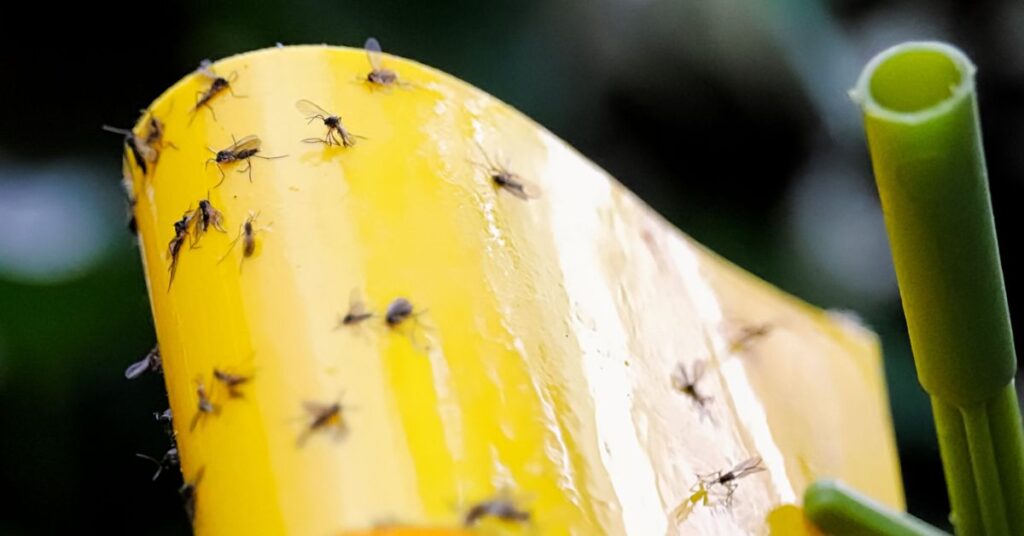Are you tired of gnats swarming around your home? Wondering how to eliminate these tiny pests for good What methods work best to keep gnats away from your kitchen and living spaces? Gnats are small, pesky insects that can quickly become a nuisance in your home. They are often attracted to moisture and organic matter, making kitchens, bathrooms, and even houseplants prime spots for infestations. While they might seem harmless, their constant buzzing can be bothersome, and they can multiply rapidly if not dealt with effectively. In this article, we will explore practical methods on how to get rid of gnats, using both natural and chemical solutions. Whether you are dealing with fungus gnats, fruit flies, or drain flies, this guide will help you reclaim your space.
What Attracts Gnats to Your Home?
Before diving into how to get rid of gnats, it’s essential to understand what attracts them to your home in the first place. Here are some common reasons why gnats might be infesting your living space:
- Moisture: Gnats thrive in damp environments, making kitchens, bathrooms, and areas around houseplants ideal breeding grounds.
- Overripe Fruits: Fruit flies, a common type of gnat, are drawn to ripening or decaying fruits and vegetables.
- Dirty Drains: Drain flies often breed in the organic matter found in drains and pipes.
- Soil in Houseplants: Fungus gnats lay their eggs in the damp soil of indoor plants, leading to infestations.
By addressing these conditions, you can significantly reduce the chances of gnats taking over your home.
How to Get Rid of Gnats Using Natural Remedies
If you prefer to avoid chemical solutions, there are several natural methods that can effectively get rid of gnats. Here’s how you can tackle them:
1. Vinegar and Dish Soap Trap
One of the simplest and most effective ways to trap gnats is by using a vinegar and dish soap mixture. Here’s how to set it up:
- Fill a bowl with apple cider vinegar and add a few drops of dish soap.
- Cover the bowl with plastic wrap and poke small holes in it.
- Place the bowl near the infested area. The vinegar attracts the gnats, and the dish soap breaks the surface tension, causing them to drown.
This method is particularly effective for fruit flies and other types of gnats.
2. Use a Potato Slice for Fungus Gnats
If you have fungus gnats around your houseplants, a potato slice can help:
- Cut a slice of raw potato and place it on the soil surface.
- Check the potato slice every couple of days and replace it with a fresh one. The larvae will be drawn to the potato, making it easier to remove them.
This technique is safe for your plants and helps reduce the gnat population over time.
3. Essential Oils
Certain essential oils, such as tea tree, lavender, and peppermint, can act as natural gnat repellents:
- Mix a few drops of essential oil with water in a spray bottle.
- Spray the mixture around windows, doorways, and infested areas to repel gnats.
Essential oils are a natural way to deter gnats while leaving a pleasant scent in your home.
How to Get Rid of Gnats Using Chemical Solutions
For severe infestations, you may need to use chemical solutions to eliminate gnats effectively. Here are some options:
1. Insecticide Sprays
Insecticide sprays specifically designed for flying insects can help eliminate gnats quickly. Look for products labeled for use against flies and gnats. Follow these steps for safe use:
- Read the label to ensure that the spray is safe for indoor use.
- Apply the spray in areas where gnats are most active, such as near windows, drains, or plants.
- Ventilate the area after use to avoid inhaling fumes.
While insecticides can be effective, they should be used as a last resort due to their chemical content.
2. Drain Cleaners
If drain flies are your main problem, a drain cleaner can help remove their breeding ground:
- Pour a drain cleaner or a mixture of baking soda and vinegar down the drain.
- Let it sit for about 30 minutes, then flush with hot water.
- Repeat the process for a few days to ensure the organic matter is completely removed.
Keeping your drains clean can prevent future infestations from occurring.
Preventing Future Gnat Infestations
Getting rid of gnats is just the first step; preventing them from returning is equally important. Here are some tips to keep your home gnat-free:
- Store Fruits Properly: Keep fruits and vegetables in the refrigerator or in sealed containers to avoid attracting fruit flies.
- Reduce Moisture: Fix any leaky faucets, clean up water spills, and ensure good ventilation in bathrooms to minimize dampness.
- Use a Dehumidifier: Dehumidifiers can help reduce moisture levels in your home, making it less attractive to gnats.
- Let Soil Dry: Avoid overwatering your indoor plants and let the top layer of soil dry out before watering again to discourage fungus gnats.
- Clean Trash Cans: Keep trash cans tightly sealed and clean them regularly to eliminate any organic matter that may attract gnats.
By following these preventive measures, you can maintain a gnat-free environment in your home.
When to Seek Professional Help
If your gnat problem persists despite trying these methods, it may be time to seek professional pest control services. Professional exterminators have access to stronger treatments and can help identify the source of the infestation. This can be especially helpful if you have a large home or if the gnats are spreading throughout multiple rooms.
Final Thoughts:
Dealing with gnats can be frustrating, but with the right approach, you can successfully eliminate them from your home. Whether you opt for natural remedies or chemical solutions, it’s important to address the underlying conditions that attract these pests. By maintaining a clean, dry, and well-ventilated environment, you can prevent future infestations and enjoy a gnat-free home. Have you tried any of these methods for getting rid of gnats? What natural solutions have worked best for you in the past? Share your experiences and tips with others looking for a gnat-free space!
FAQs
Q1: Can I use bleach to get rid of gnats in my drains?
A1: Yes, pouring a small amount of bleach down the drain can help eliminate drain fly larvae. However, use it cautiously and follow safety guidelines.
Q2: How long does it take to get rid of a gnat infestation?
A2: The time it takes to eliminate gnats depends on the severity of the infestation and the methods used. It can take anywhere from a few days to a couple of weeks.
Q3: Are gnats harmful to humans?
A3: Most gnats are not harmful to humans, but they can be annoying and can contaminate food. Fungus gnats may harm houseplants by feeding on roots, leading to plant damage.







